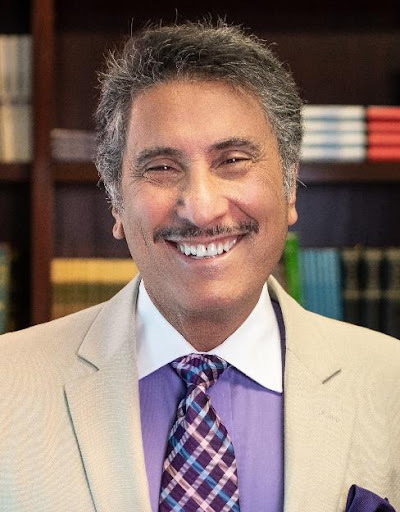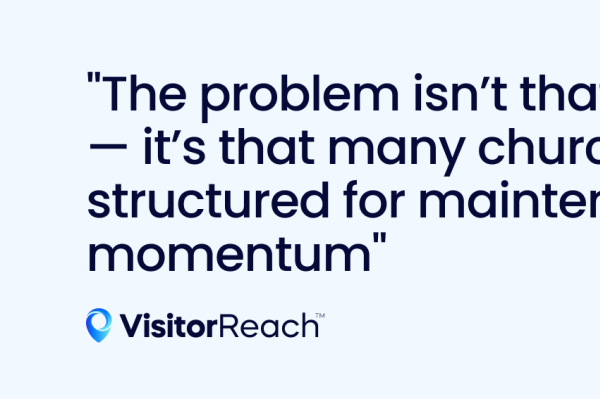Believe in the Real Gospel, Not a Stripped-Down Version, Says Michael Youssef

In his brand-new book “Never Give Up: Holding Fast to Biblical Truth in Times of Danger and Despair,” pastor and bestselling author Dr. Michael Youssef exhorts believers to be unashamed for the Gospel at a time when many are compromising biblical truth.
Have you ever wondered why nonbelievers display such an intense hatred for Jesus and His followers? What is it about our faith in God's infallible Word that triggers such hostility among the unsaved? The answer may be simpler than you think.
The gospel tells us that we are lost in our sin, and there is no way we can save ourselves through good works. Salvation is by grace through faith, not of works (Eph. 1:8–9). The moment we recognize the awfulness of our sin and cast ourselves upon God's mercy and grace, He forgives, transforms and justifies us. That is the gospel message.
That message is a problem for nonbelievers because the natural human mind cannot admit the gravity and horror of sin. The natural mind says, "I admit I'm not perfect, but I'm a good person. If there is a God, He will accept me. I don't need a Savior. So keep your 'sin' talk to yourself. Don't bother me with your gospel."
The natural mind refuses to admit to having sinned so grievously that Jesus would have to die. "You're telling me that Jesus died to save me? Me? Are you calling me a hopeless, helpless sinner? How dare you!"
That's why, in church after church, preachers have stopped preaching the gospel of redemption from sin, and now preach a message of human virtue. They have stopped preaching the cross and the empty tomb and instead preach positive thinking. They have stopped preaching justification by grace through faith, and instead preach social justice propaganda.
These preachers want to be liked and admired by nonbelievers. They want to have a popular ministry that rakes in big donations from people who only attend church to have their egos flattered.
What did Paul tell Timothy to do in a world that is hostile to the gospel of salvation? And what are we do to? Answer: Guard the truth!
"What you heard from me, keep as the pattern of sound teaching, with faith and love in Christ Jesus. Guard the good deposit that was entrusted to you—guard it with the help of the Holy Spirit who lives in us" (2 Tim. 1:13-14, NIV).
The "pattern of sound teaching" Paul writes of is God's blueprint. The word translated "pattern" is the same word used for an architectural design. What happens if a builder decides to ignore the architectural blueprint? What if the builder decides he doesn't want to bother putting up the pillars, crossbeams and archways that are specified by the architect? The building will collapse.
And that is why the apostle Paul, in the closing days of his life, pleads with Timothy—and with you and me—to please, please, please follow the blueprint of sound teaching. Please, please, please guard the deposit of truth that was entrusted to you. Don't try to improve on it. Don't deviate from it. Don't modify it.
Above all, don't ever grow weary of upholding God's truth. Regardless of opposition, persecution, suffering or personal cost, follow the blueprint, guard the truth. Never be ashamed of the gospel.
False Teachers in the Church
As you read through Paul's second and final letter to Timothy, it becomes clear that he carries a great emotional burden in the closing days of his life. What is this burden? False teachers had infiltrated the church. False teachers are widespread in the 21st-century church, and they were already widespread in the first-century church.
Some false teachers pervert the gospel for their own enrichment. They have greedy, selfish motives and their god is the almighty dollar. Other false teachers have "good intentions." Their "gospel" is one of improving society and treating people fairly and making sure that no one's feelings are hurt by talk of sin or judgment.
But whether their motive is greed or good intentions, they have corrupted the gospel. They are robbing the church of the priceless treasure of truth which the Lord has entrusted to his church.
Though Paul is burdened by the subversion of the church, he is able to say, "That is why I am suffering as I am. Yet this is no cause for shame, because I know whom I have believed, and am convinced that he is able to guard what I have entrusted to him until that day" (2 Tim. 1:12). What day? The day of the Lord's return!
As Paul faces death, he knows that Timothy will be an instrument for preserving the truth of the gospel. At the same time, Paul is aware of Timothy's tendency to discouragement, fear and timidity. So Paul tells Timothy he does not have to carry this burden alone. Though the church has been infiltrated by false teachers, Timothy can rely on God to guard his truth until the Lord's return.
In the closing lines of this chapter, we see that many in the first-century church have defected from the truth. Paul names two individuals in particular: Phygelus and Hermogenes. They couldn't stand up to persecution, so they fell away (2 Tim. 1:15).
Paul also expresses gratitude for those who stood firm for the truth, especially a faithful Christian named Onesiphorus (2 Tim. 1:16–18). The Bible tells us little about Onesiphorus (who is not to be confused with Onesimus, the slave mentioned in Paul's letter to Philemon). Ancient tradition suggests that Onesiphorus may have been one of the 70 disciples sent out by Jesus to preach (see Luke 10). Though Phygelus and Hermogenes defected, Onesiphorus remained faithful.
Today, Christians around the world suffer persecution, torture and death for the sake of Jesus Christ. Christians in America are not persecuted to that extent—not yet. But many who call themselves Christians are abandoning the gospel out of mere embarrassment and shame. They don't want to face ridicule from their worldly friends, so they sell out the gospel and conform to this fallen world.
Others, trying to live in peaceful coexistence with this fallen world, have "deconstructed" their faith (yes, that's the buzzword they use). They toss out the parts of the gospel they consider offensive, and try to retain some semblance of Jesus and His teachings—though, of course, everything he said about sin, judgment, hell, His death and resurrection, and His Second Coming must go. Once they have finished "deconstructing" the Christian faith, what do they have left?
The Lord Is Trustworthy
One popular evangelical author and leader went through this process a few years ago. His name is Joshua Harris. Beginning in the late 1990s, he wrote a series of best-selling books on the Christian view of dating and relationships. By age thirty, he was the pastor of a megachurch in Maryland. In 2018, while in his mid-forties, he publicly disavowed his earlier books. In 2019 he announced he was going through a divorce. He soon followed that announcement with a statement on Instagram, which included these sad words:
I have undergone a massive shift in regard to my faith in Jesus. The popular phrase for this is “deconstruction,” the biblical phrase is “falling away.” By all the measurements that I have for defining a Christian, I am not a Christian. Many people tell me that there is a different way to practice faith and I want to remain open to this, but I’m not there now.
I fear for this man. I sincerely pray he will find his way to a biblically grounded faith in Jesus Christ. He diagnosed his own condition with devastating accuracy. He has fallen away from the faith. His story is a sobering lesson to us all.

Like Phygelus and Hermogenes, we all risk falling away from the faith when we become embarrassed by the gospel. We risk falling away when, instead of guarding God’s truth, we begin to deconstruct it. We risk falling away when we seek friendship with the world instead of faithfulness to the Lord.
Paul’s message to Timothy and to us is keep the pattern of sound teaching and guard the good deposit of truth that was entrusted to you. The Lord is faithful to His Word. He will never allow the light of the gospel to be extinguished. God has entrusted the gospel to us, but He has not abdicated. He is watching over His Word. He will preserve it, with or without us. Whether or not we remain faithful, He will always be faithful.
He is trustworthy. He will accomplish all things according to the counsel of His will.
Whatever you are going through, whatever trials and obstacles you face in life, you can trust Jesus, the faithful and true. All He asks is that you be faithful to His Word.
“Never Give Up” is available now through Leading The Way and wherever books are sold. Get your copy today.

Dr. Michael Youssef is a pastor, bestselling author, and internationally respected Bible teacher. He was born in Egypt and lived in Lebanon and Australia before coming to the United States and fulfilling a childhood dream of becoming an American citizen. He holds degrees from Moore College in Sydney, Australia, and Fuller Theological Seminary in California, and has a Ph.D. in social anthropology from Emory University. Dr. Youssef is the host of the popular TV and radio broadcast Leading The Way with Dr. Michael Youssef, which airs more than 13,000 times every week, reaching audiences in nearly every major city in the world. He has authored more than 50 books, including his bestselling book “Saving Christianity?” and his new book “Never Give Up,” published by Charisma House.





